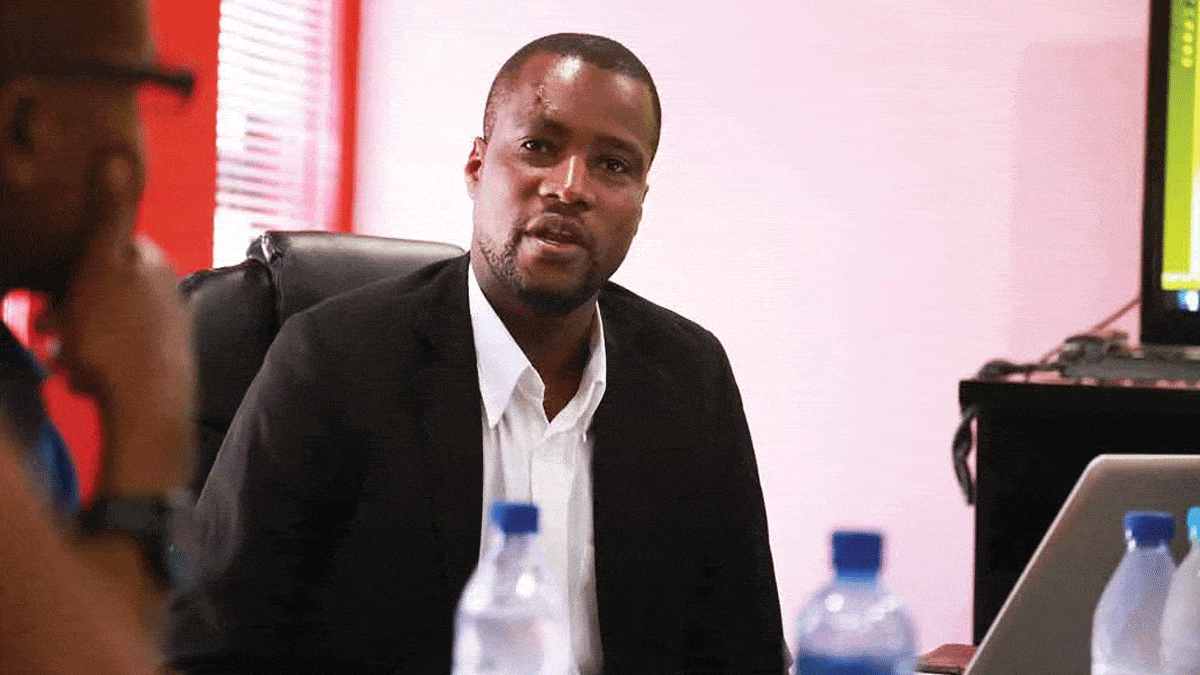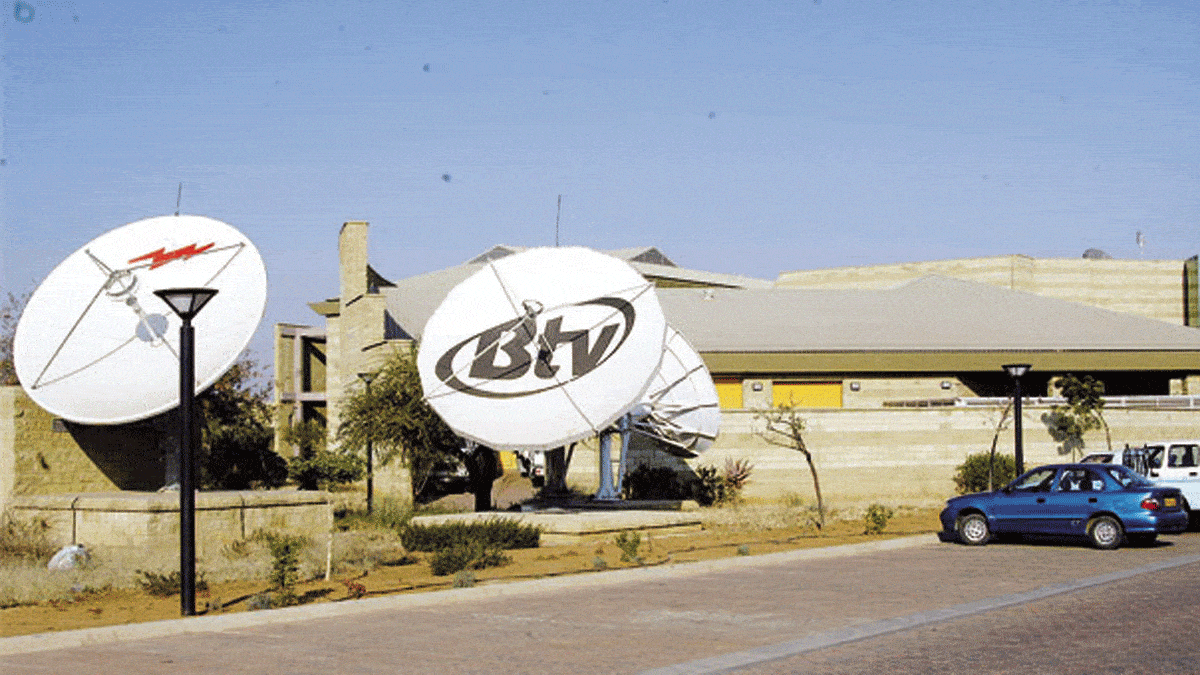Cyber psychology is a discipline that looks into effects of digital technologies on people’s social and psychological wellbeing.
It is a subject that explores interventions to curb negative effects and increase positive effects.
This week The Voice reporter, Baitshepi Sekgweng sat down with former Yarona Fm radio station manager and founder of InFuture Foundation, a non – profit organisation that promotes digital literacy, David Moepeng to share his journey from the newsroom to the world of information and technology.
For this veteran journalist who spent 16 years in the newsroom before he decided to pivot towards social entrepreneurship the sky is the limit as he now dons a new hat as a qualified cyber psychologist.
Take us through your career journey?
I started my career in the media as a radio journalist for Yarona FM.
I served as Head of News at the station for 12 years before being promoted to Station Manager in 2013.
I then stepped down from the Station in 2016 to venture into business and also do charity work.
I set up a media monitoring company to provide media marketing and advertising analysis services.
In the same year, I also founded InFuture Foundation, a non – profit organisation that promotes digital literacy through public education campaigns.
In 2020, I went to the United Kingdom to pursue a Masters course in Cyber psychology at Nottingham Trent University.
You spent many years at Yarona FM but still you ended up leaving, why did you leave a place which many thought was so dear to you?
You are absolutely right; Yarona FM was dear to me because it is at the station that my career blossomed.
However, it had been my plan from 2010, after returning from Rhodes University, where I had gone to pursue a post Graduate Diploma in Media Management, to eventually step down and grow my media entrepreneurship side.
I had been running video production and magazine publishing company on the side while still employed by Yarona FM.
In fact, I had wanted to resign from Yarona FM in 2013, just before Owen Rampha stepped down as Station Manager.
So what made you to stay a little longer?
When Owen left I had to reconsider my decision, especially when I became aware that the Board wanted me to take over from him.
I saw the role of Station Manager as a great opportunity to enhance my media entrepreneurial and leadership skills.
Within three years, I had achieved what I had set myself out to achieve in terms of turning around the Station, particularly in diversifying it from being a one medium media offering, to one with multiple revenue streams.
I had also gained the skills and the experience I needed to pursue my dream of running my own business ventures.
You spent close two decades in the media industry, then changed to IT, what influenced this?
I may have changed careers, but I am still working closely with the media.
As a Cyber psychologist, I use the media a lot to raise awareness and promote safe online habits.
I have always believed that the huge influence that the media carries on society should be used more to empower and advance lives.
InFuture Foundation was therefore founded with the aim of tapping into this influence to promote positive societal change through media campaigns.
In the digital era, life is increasingly happening in cyberspace; hence it is crucial that public literacy on digital technologies is always at the highest levels possible.
So we are basically using the media to promote digital literacy, which encompasses cyber security and online safety awareness.
Currently you are spearheading eBotho initiative, shed some light on that??
eBotho Initiative is one of the digital literacy campaigns that we run at InFuture Foundation.
Its objectives are basically to promote safe, responsible and meaningful use of the internet.
This is with the aim of curbing internet related social ills such as cyber bullying, cybercrime and much other online harm.
We also have another campaign called Cybersmart, in which we have partnered with Cyber4Dev, a European Union funded programme, to educate the public about cyber security.
We also partner with organisations such as Botswana Communications Regulatory Authority (BOCRA), Ministry of Transport and Communications, Botswana Telecommunications Corporation Limited and the EU Delegation to Botswana.
What really influenced this initiative and what do you want to achieve with it?
The initiatives came out of a realisation that as the Botswana society, like the rest of the global society, is increasingly becoming digitalised and technology use forms a significant part of almost every aspect of life, people are becoming exposed to various kinds of risks in cyberspace.
This has been happening with little public education on tackling cyber security risks. I therefore saw the need for public education on these risks.
It’s been three years since the inception of the initiative, what difference has eBotho made to Batswana or local cyberspace?
The eBotho Initiative is growing steadily.
One of the ways in which we have noticed growth is in the number of participants in our annual Cybersmart Challenge, which started with about 200 entries and recorded double growth in 2021 as compared to the previous year.
We have, in partnership with Cyber4Dev, also recently rolled out another initiative called Cybersmart Champions, which is a peer to peer education programme through which we are training aspiring cyber security awareness peer educators around the country to undertake campaigns in their communities.
We have conducted workshops in six regions so far and we plan to roll out the programme to five more regions in May, 2022. Our partnership with BOCRA also keeps growing.
This year, for the 3rd time, we have embarked on a joint campaign to promote online safety awareness as part of activities to commemorate Safer Internet Day.
The other sign of growth is in our collaboration with the University of CapeTown based Cyber security Capacity Centre for Southern Africa(C3SA) in organising and hosting a webinar on the role of Civil Society in Cyber security Awareness.
We are yet to undertake a study to measure the impact of our campaigns, but we believe as our messages reach more people, change is effected.
Internet is still a challenge locally, more especially in rural areas, how do you make sure that those in rural areas are not left behind and also reap the benefits of eBotho?
The Cybersmart Champions programme, which I mentioned earlier, is one way through which we are taking cyber security awareness across Botswana, including to rural areas.
We recently conducted training workshops for cyber security awareness peer educators in Nata, Bobonong, Serowe, Molepolole, Francistown and Gaborone.
These peer educators are equipped with the skills to conduct awareness activities in their communities so as to widen reach across Botswana.
You are championing this eBotho initiative, what is the role of government in it??
We are working closely with the Ministry of Transport and Communications and BOCRA. The latter provides funding for our awareness campaigns while the Ministry supports activities such as the Cybersmart Challenge and commemoration activities.
It was just late last year when the Cyber smart Challenge winners were unveiled, what new additions should we expect for the 2022 edition?
In 2022, we intend to introduce a category in the Cybersmart Challenge, specifically catering for Cybersmart Champions Peer Educators, who will be invited to submit entries as groups or chapters, in which they show their activities and the impact they are making.
The groups that would have done the most impactful awareness activities will be awarded prizes.
What is the best way to use the internet safely?
Online safety begins with knowledge. One must first gain understanding of online risks and learn about ways to avoid harm.
One must then apply the knowledge to adopt habits that do not put them at risk.
This includes, among many, maintaining privacy, online account security, cautious surfing of the web and verifying things before acting.
Where do you draw your inspiration?
The digital world is a great source of inspiration for me.
It contains numerous opportunities for advancement in many aspects.
In the digital sphere, we as individuals, organisations and economies have numerous opportunities at our disposal and that inspires me to keep learning, exploring, growing and taking advantage of these opportunities.
My work as a cyber-psychologist is driven by my desire to empower others to use digital technologies meaningfully.
Away from your hectic schedule, how do you relax?
I spend most of my time with my kids at home, sometimes reading and growing my knowledge on the cyber world as well as travelling, particularly outside the country for benchmarking and exploring business opportunities.
Thank God it’s Friday, what are you up to?
Nothing much for me this Friday, I might go out for Pizza with my kids and then go home for a relaxed evening.












